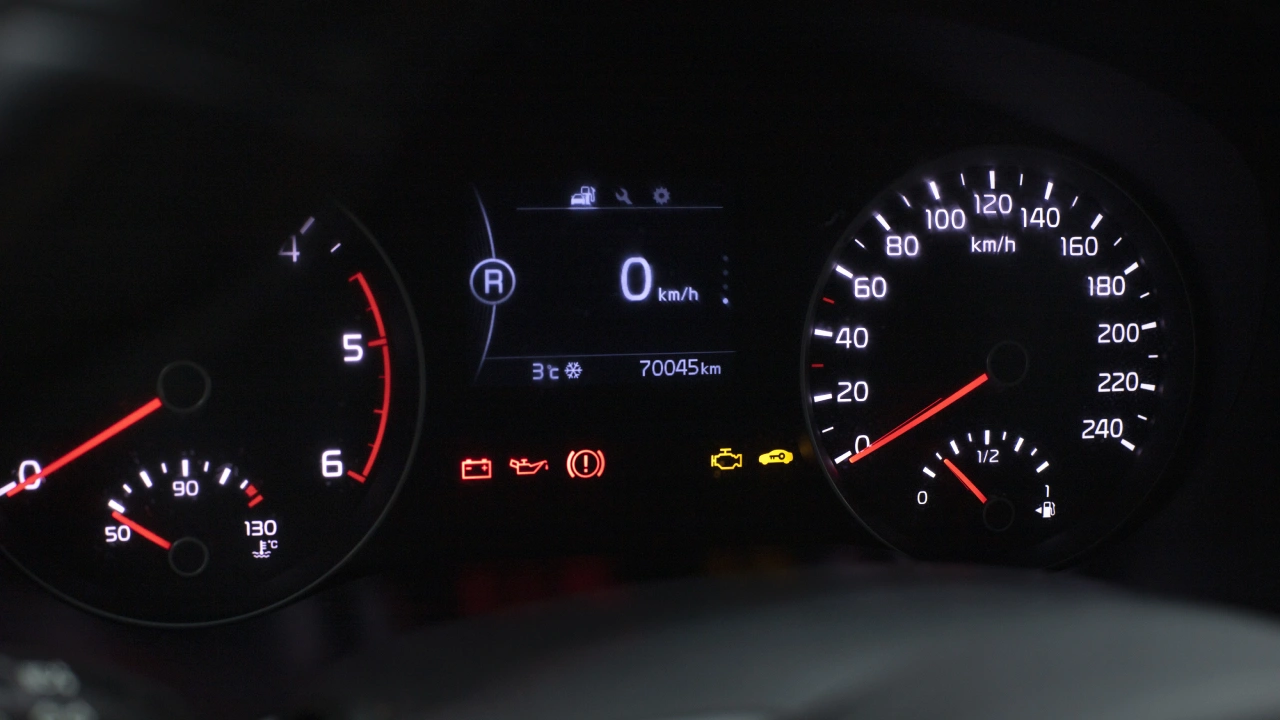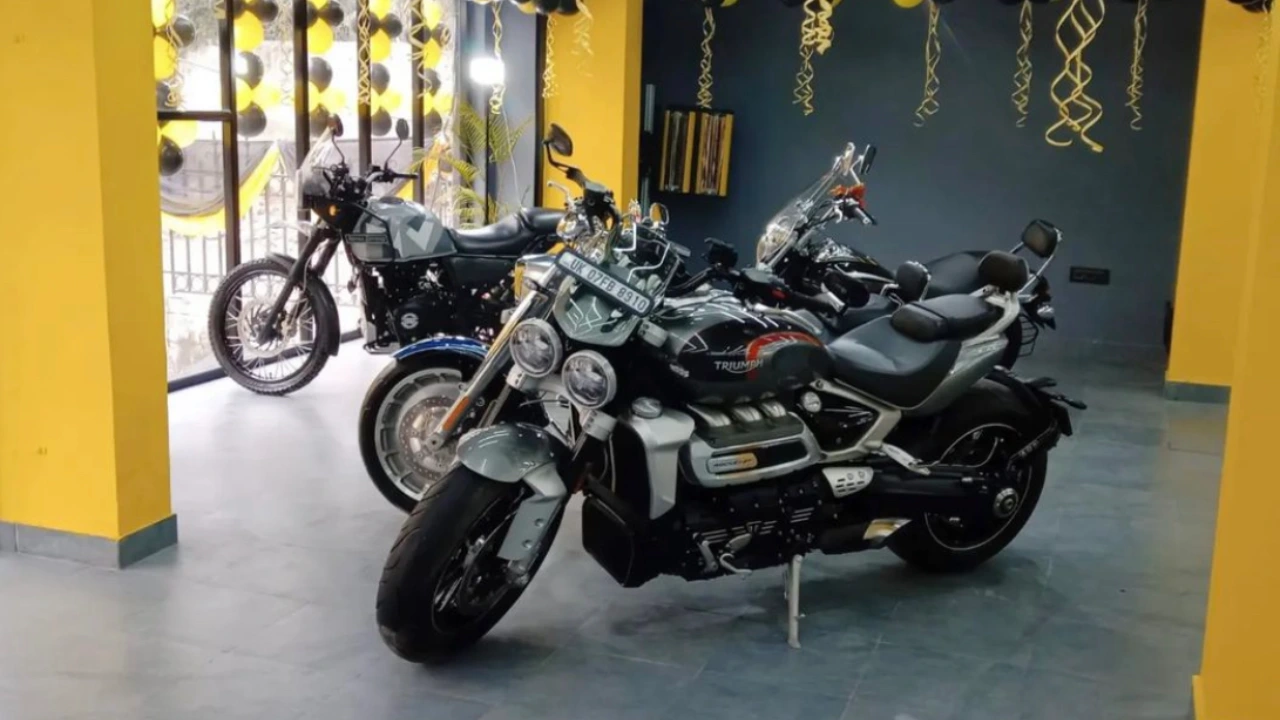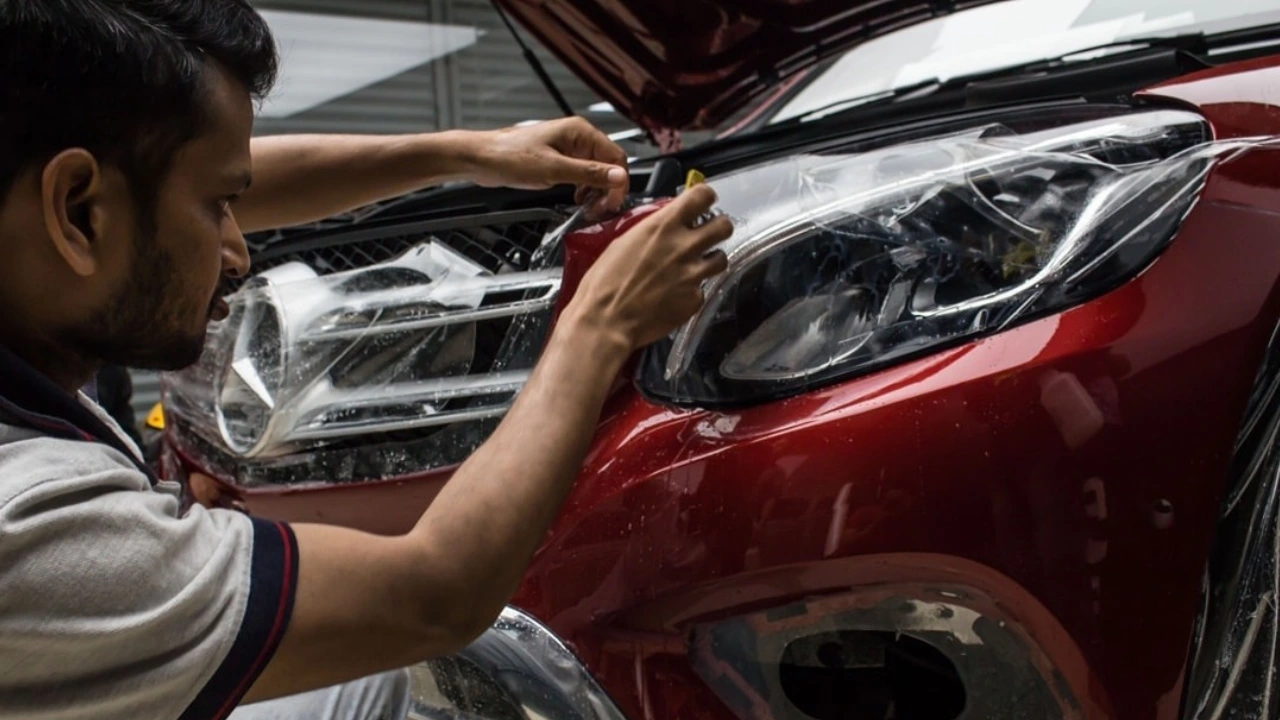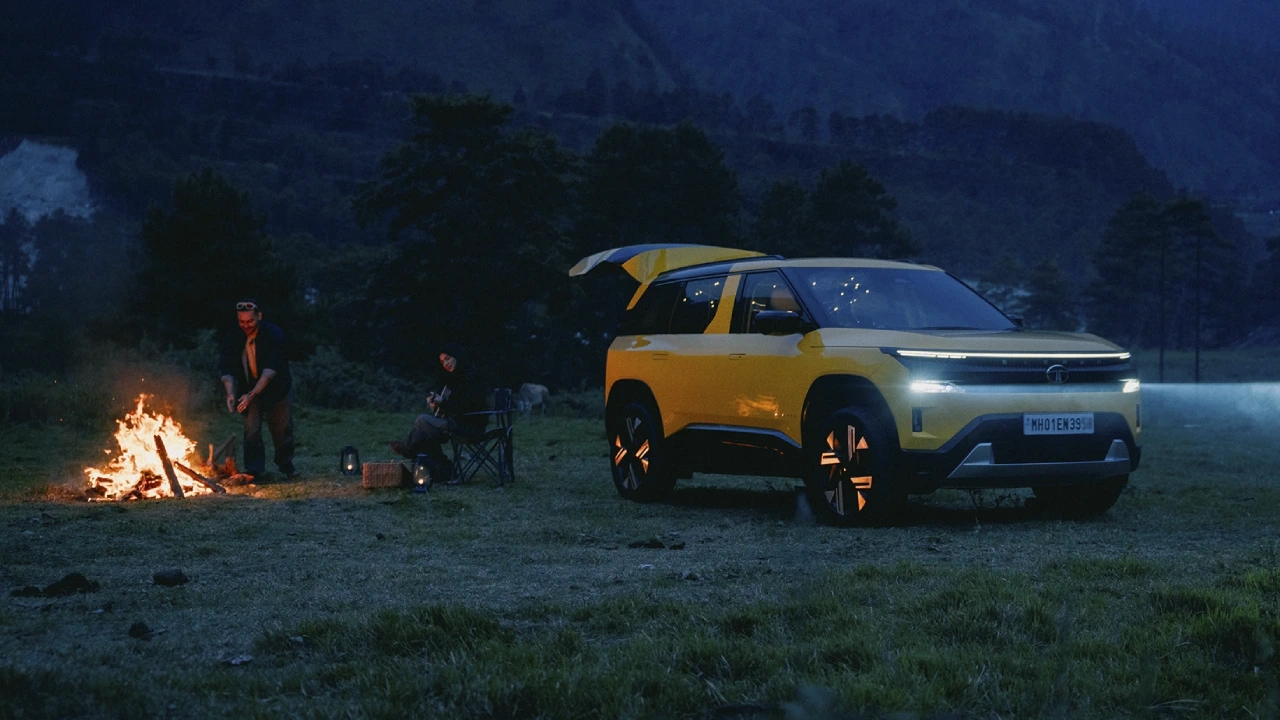Are you worried about your car’s increasing fuel consumption? Don’t worry, you’re not alone. With fuel prices soaring and environmental concerns growing, getting the most out of every drop of fuel has become more important than ever. At its core, good mileage isn’t just about saving money – it’s about making your car run more efficiently and reducing its impact on the environment.
In this guide, you’ll learn practical tips that work, understand the science behind fuel efficiency in simple terms and discover how new technologies are changing the game. Whether you own a small hatchback or a luxury SUV, these tips, compiled by the car care experts at CarzSpa will help you get more kilometres from every litre or charge.
Table of contents
Understanding Car Mileage: Why It Matters?
Let’s talk about why good mileage is a big deal, especially for us Indians. First off, rising fuel prices are hitting our wallets hard. Every rupee saved at the pump adds up, especially with the frequent price hikes we face.
Secondly, our environment is precious. Excessive fuel consumption contributes to air pollution, which is a major concern in many Indian cities. By improving our car’s mileage, we’re doing our part to reduce emissions and protect the environment.
Finally, good mileage simply means your car is running more efficiently. This translates to better engine health and potentially fewer maintenance issues down the line.
So, maximising your car’s mileage isn’t just about saving money – it’s about making smart choices for your wallet, the environment and your car’s long-term well-being.
How to Calculate Your Car's Real Mileage?
Knowing your car’s actual mileage helps you track your fuel efficiency and identify areas for improvement. Here’s how to calculate it:
- Fill up your tank: Fill your car’s tank completely to the brim. Note the exact odometer reading. For example, let’s say the initial odometer reading is 10,000 km.
- Drive normally: Drive your car as you usually would for a few days or weeks.
- Refill the tank: Fill up the tank again to the brim. Note the new odometer reading. Let’s say the final odometer reading is 10,250 km.
- Calculate the distance: Subtract the initial odometer reading from the final reading to find the distance travelled.
- Distance traveled = 10,250 km – 10,000 km = 250 km
- Calculate the fuel consumed: Subtract the initial fuel volume from the final fuel volume to find the amount of fuel used. Let’s say you filled up with 10 litres of fuel initially. After driving, you filled up with 10 litres again.
- Fuel consumed = 10 litres
- Calculate mileage: Divide the distance travelled by the amount of fuel consumed. This gives you your car’s real-world mileage in kilometres per litre (kmpl).
- Mileage = 250 km / 10 litres = 25 kmpl
Note: This is just an example. Your actual mileage will vary depending on factors like driving conditions, traffic and your driving style.
Fuel Efficiency Across Different Fuel Types
- Petrol: Petrol engines use spark plugs to ignite the fuel-air mixture. While efficient, petrol combustion can sometimes be incomplete, leading to lower fuel efficiency compared to diesel.
- Diesel: Diesel engines rely on high compression to ignite the fuel, resulting in more complete combustion and better fuel efficiency.
- CNG: CNG is a cleaner-burning fuel that produces fewer emissions than petrol or diesel. Its high energy content per unit of volume contributes to its excellent fuel efficiency.
- Hybrid Vehicles: Hybrids combine a petrol/diesel engine with an electric motor, offering improved fuel efficiency compared to traditional liquid fuel cars. They can operate on electricity alone for short distances, reducing reliance on fuel.
- Electric Vehicles (EVs): EVs use electric motors instead of internal combustion engines. Electric motors are significantly more efficient than petrol/diesel engines, converting a larger percentage of energy into motion.
Note: In India, the EV infrastructure is still at its nascent stage hence this is also a costly alternative. The choice of fuel type depends on various factors, including budget, driving needs and availability of infrastructure.
ARAI vs. Real-World Mileage
You might have noticed a difference between the mileage figures advertised by the manufacturer (usually ARAI-certified) and the mileage you actually achieve. ARAI (Automotive Research Association of India) tests vehicles under controlled conditions, which may not reflect real-world driving scenarios like traffic, varying speeds and road conditions. Factors like air conditioning, heavy loads and aggressive driving can significantly impact your car’s actual mileage.
For example, the Maruti Suzuki Baleno, a popular hatchback in India, might has an ARAI-certified mileage of 22.35 kmpl. However, in real-world driving conditions, most owners are likely to achieve a mileage closer to 18-21 kmpl depending on their driving style and city conditions
By calculating your own mileage, you get a realistic picture of your car’s fuel efficiency and can identify areas for improvement.

10 Proven Tips to Increase Your Car's Mileage
Here are some proven tips to help you squeeze more kilometres out of every litre of fuel:
1. Tyre Pressure Maintenance
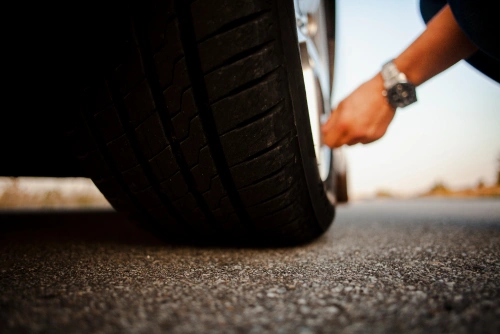
Properly inflated tyres are crucial for fuel efficiency. Underinflated tyres increase rolling resistance, forcing your engine to work harder, which consumes more fuel. For hatchbacks and mid-size sedans in India, the ideal tyre pressure is typically between 32-35 PSI (on cold tyres have not rolled for at least 2-3 hours before the check). However, the best way to find out your car’s ideal tyre pressure is to check the owner’s manual. Regularly check your tyre pressure and inflate them to the recommended pressure.
2. Smart AC Usage
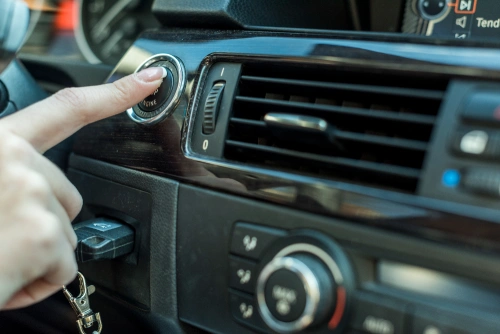
Using the air conditioner increases the load on your engine, leading to higher fuel consumption. Whenever possible, use the windows for ventilation, especially at lower speeds. At higher speeds, it’s generally more fuel-efficient to use the AC as it reduces aerodynamic drag.
3. Efficient Gear Shifting
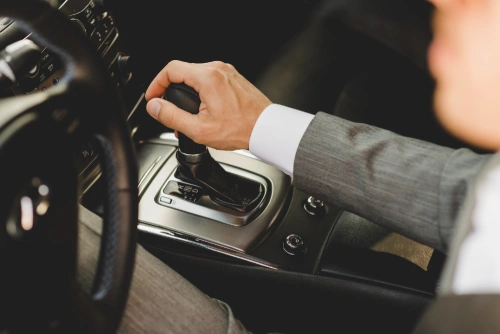
Shifting gears at the right RPM is key to maximising fuel efficiency.
- Shifting too early: It can cause the engine to work harder at lower speeds, consuming more fuel.
- Shifting too late: This can keep the engine revving high, which also increases fuel consumption.
Try to find the “sweet spot” where the engine is running smoothly and efficiently. You can usually feel this by observing the engine’s RPM and listening to the engine sound. In petrol variants, the RPM should usually range between 2000-2500, while in diesel variants, it should range between 1500-2000 RPM for good mileage.
4. Smooth Driving Techniques
Aggressive driving habits like sudden acceleration and braking waste a lot of fuel.
- Sudden acceleration: This forces the engine to work harder to overcome inertia, increasing fuel consumption.
- Hard braking: This converts kinetic energy into heat, which is wasted energy.
Practice smooth and gradual acceleration and deceleration. Anticipate traffic and adjust your speed accordingly to avoid unnecessary braking.
5. Regular Service and Maintenance
Regular car maintenance is crucial for optimal fuel efficiency.
- Clean Air Filter: A clogged air filter restricts airflow to the engine, forcing it to work harder. This increases fuel consumption and can also damage the engine.
- Tune-ups: Regular tune-ups ensure that your engine is running smoothly and efficiently.
- Properly maintained engine: A well-maintained engine burns fuel more completely, resulting in better mileage.
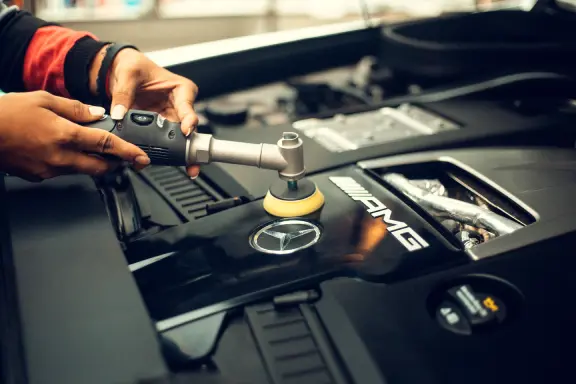
By keeping your car well-maintained through the above-mentioned steps and car detailing services, you can ensure that it operates at its peak efficiency and delivers the best possible mileage.
6. Route Planning
Planning your routes in advance can help you avoid traffic jams and unnecessary detours. Spending more time idling in traffic significantly increases fuel consumption. Exploring alternative routes can sometimes help you avoid traffic and reach your destination faster, saving fuel. Using navigation apps or online maps can help you find the most efficient routes and avoid traffic congestion.
7. Weight Management
Extra weight in your car directly impacts fuel efficiency. Every extra kilogram adds to the weight your car needs to carry, increasing the load on the engine. Unnecessary items in the trunk, roof racks or even excessive passenger weight can all contribute to increased fuel consumption. Remove any unnecessary items from your car to reduce weight and improve mileage.
8. Engine Warm-up
While the need for prolonged idling has decreased with modern engines, allowing your engine to warm up for a short time before driving can improve fuel efficiency. When the engine is cold, it takes a bit more fuel to reach optimal operating temperature. Most modern cars with fuel injection systems don’t require prolonged idling. A short warm-up period of a minute or two is usually sufficient to allow the engine to reach a stable operating temperature.
9. Fuel Quality Choices
Using good quality fuel is essential for optimal engine performance and fuel efficiency. Low-quality fuel can contain impurities that can clog fuel injectors and reduce engine performance. It can also lead to incomplete combustion, reducing fuel efficiency and potentially damaging your engine.
Always use high-quality fuel from reputable fuel stations to ensure optimal engine performance and fuel efficiency.
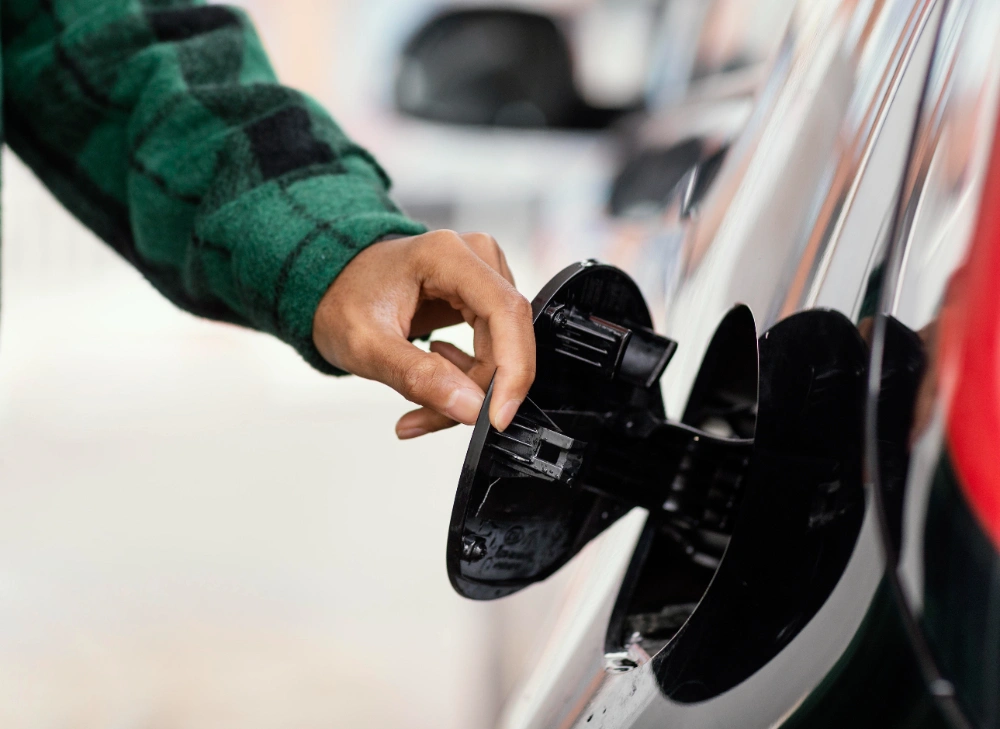
10. Modern Technology Usage
Modern cars come equipped with various technologies designed to improve fuel efficiency. Many modern cars offer “eco driving” modes that adjust engine performance and transmission settings to prioritise fuel efficiency.
Start-stop technology: This technology automatically shuts off the engine when the car comes to a complete stop, such as at traffic lights, saving fuel. Several Maruti Suzuki models like the Swift, Dzire, and Baleno and Hyundai’s Creta, Venue, and i20 feature start-stop systems.
Regenerative braking: This technology captures energy during braking and uses it to recharge the battery, improving overall efficiency, especially in hybrid and electric vehicles.
Utilising these technologies effectively can significantly improve your car’s mileage.
Common Mistakes That Reduce Mileage
We all make mistakes and some of our driving habits can unknowingly hurt our fuel efficiency. Here are some common mistakes to avoid:
- Excessive idling: While short warm-up periods are generally fine, prolonged idling wastes fuel and increases emissions.
- Rapid acceleration and braking: These aggressive driving styles put a significant strain on the engine, leading to increased fuel consumption.
- Overloading: Carrying unnecessary weight in your car puts extra strain on the engine and reduces fuel efficiency.
- Skipping Maintenance: Neglecting regular maintenance like oil changes, filter replacements, and tune-ups can significantly impact your car’s fuel efficiency. Dirty engine oil can increase friction and reduce engine performance, leading to higher fuel consumption.
Misconceptions Cleared
- Myth: High-octane fuel always improves mileage.
Fact: High-octane fuel is designed for high-performance engines. Using it in a regular car won’t necessarily improve mileage and might even be a waste of money.
- Myth: Keeping the AC off always saves fuel.
Fact: At higher speeds, using the AC can actually be more fuel-efficient than opening the windows due to increased aerodynamic drag.
By being aware of these common mistakes and misconceptions, you can adjust your driving habits and maximise your car’s fuel efficiency.
Long-Term Strategies for Better Fuel Efficiency
For sustained fuel efficiency, consider these long-term strategies:
- Adhere to your car’s recommended maintenance schedule: Regular servicing ensures that your engine is running smoothly and efficiently, which directly impacts fuel consumption.
- While getting a complete car detailing service, ensure it involves engine bay cleaning too, like the in-and-out restoration offered at CarzSpa Detailing Studios.
- Timely replacement of filters (air, fuel, oil) and other components is crucial.
Some concluding thoughts…
Whether you’re driving in city traffic or cruising on highways, your car’s mileage depends on many factors – some that you can control and some that you can’t. The good news? Small changes in how you drive and maintain your car can make a big difference in your fuel consumption. From simple driving techniques, getting regular maintenance and car detailing services to modern car technologies, following these proven ways will help increase your car’s mileage.
Frequently Asked Questions
1. Does AC Reduce Mileage?
The best car wash depends on A consumer report study has found that driving your car with the AC on reduces your car’s mileage, so shutting down the AC whenever possible is a good way to reduce fuel consumption.
2. Which Speed is Good for Mileage?
Driving at a steady speed can yield optimal fuel efficiency. For most cars, speeds between 50 and 80 km/h on higher gears are best for mileage.
3. Which Gear Saves Fuel?
Higher gears save fuel because they allow the engine to run at lower revolutions per minute which means your engine doesn’t have to work that hard in higher gears and thus requires less fuel.
4. Which RPM is Better for Mileage?
The most efficient Revolutions Per Minute (RPM) is between 1500 and 2000 RPM depending on your vehicle. For petrol cars, it is 2500 RPM and for diesel cars, it is 2000 RPM.

